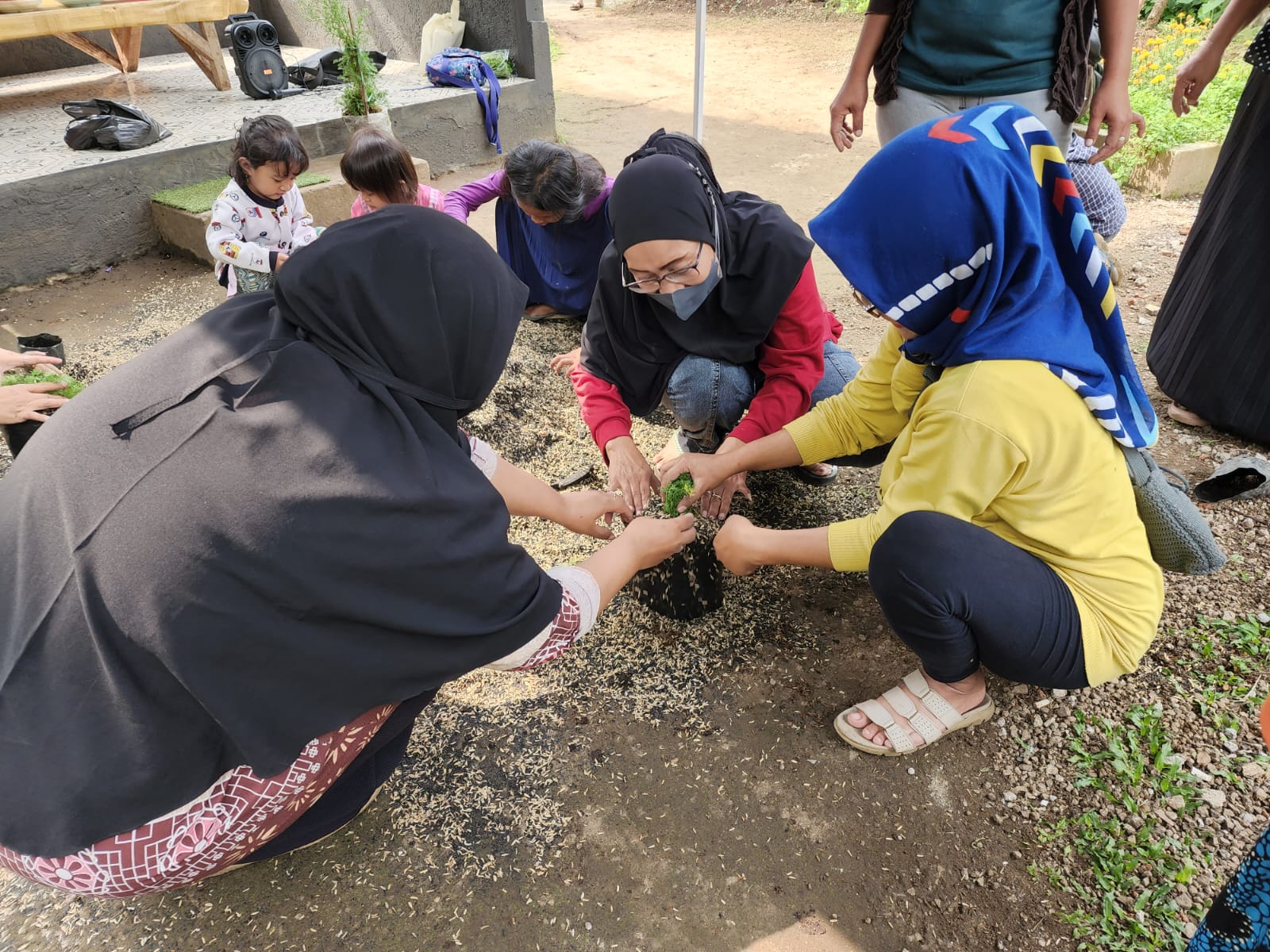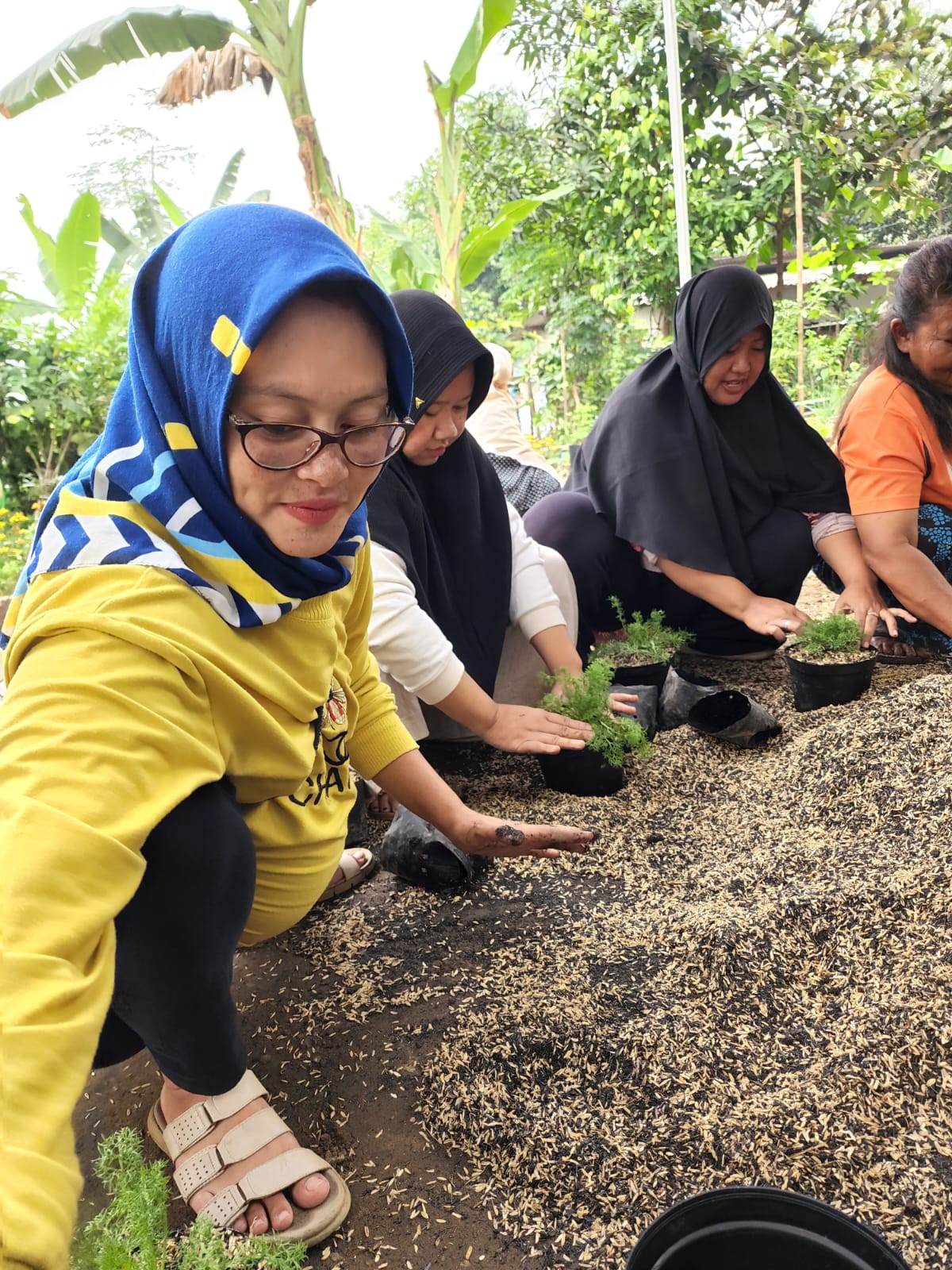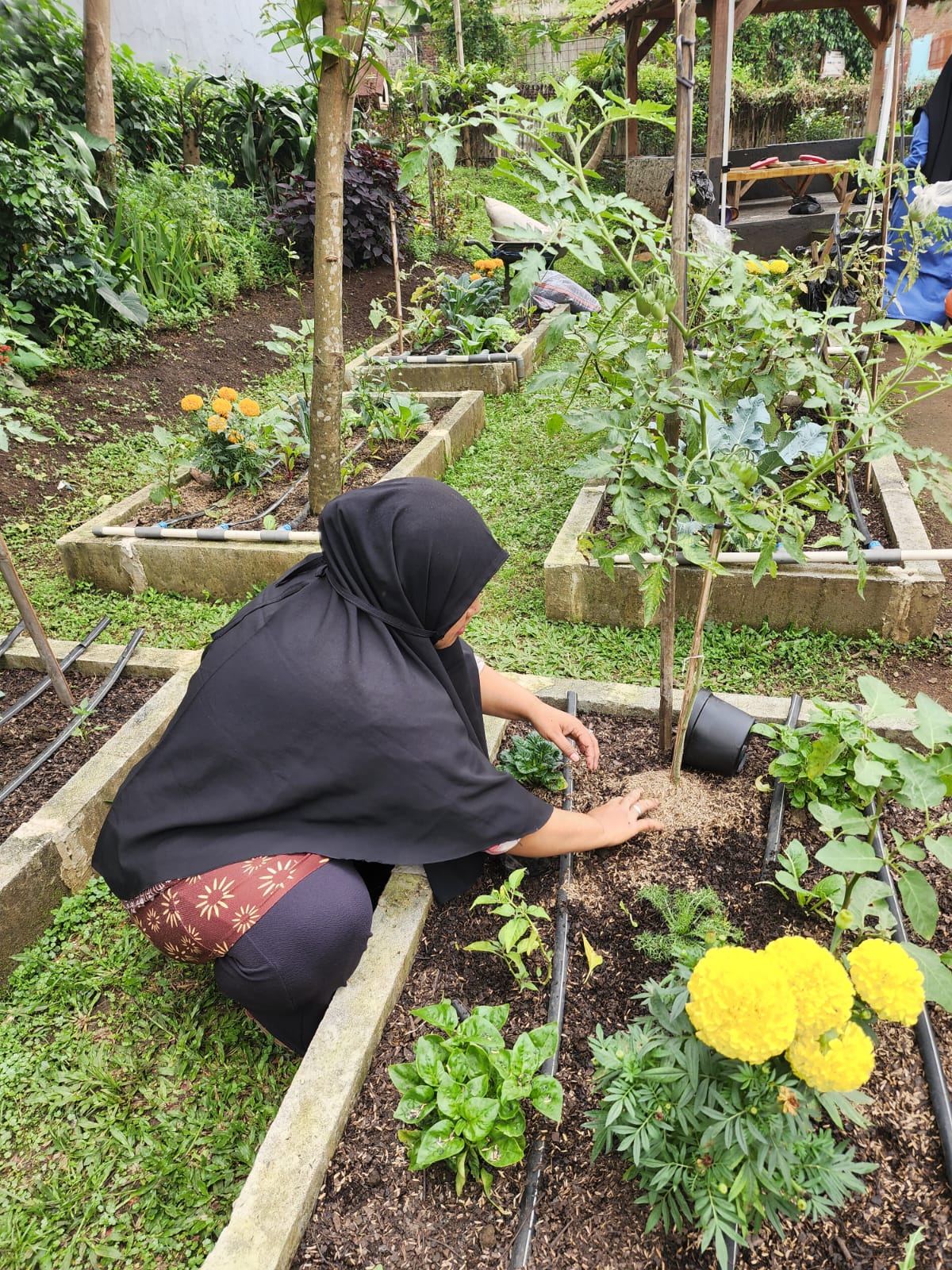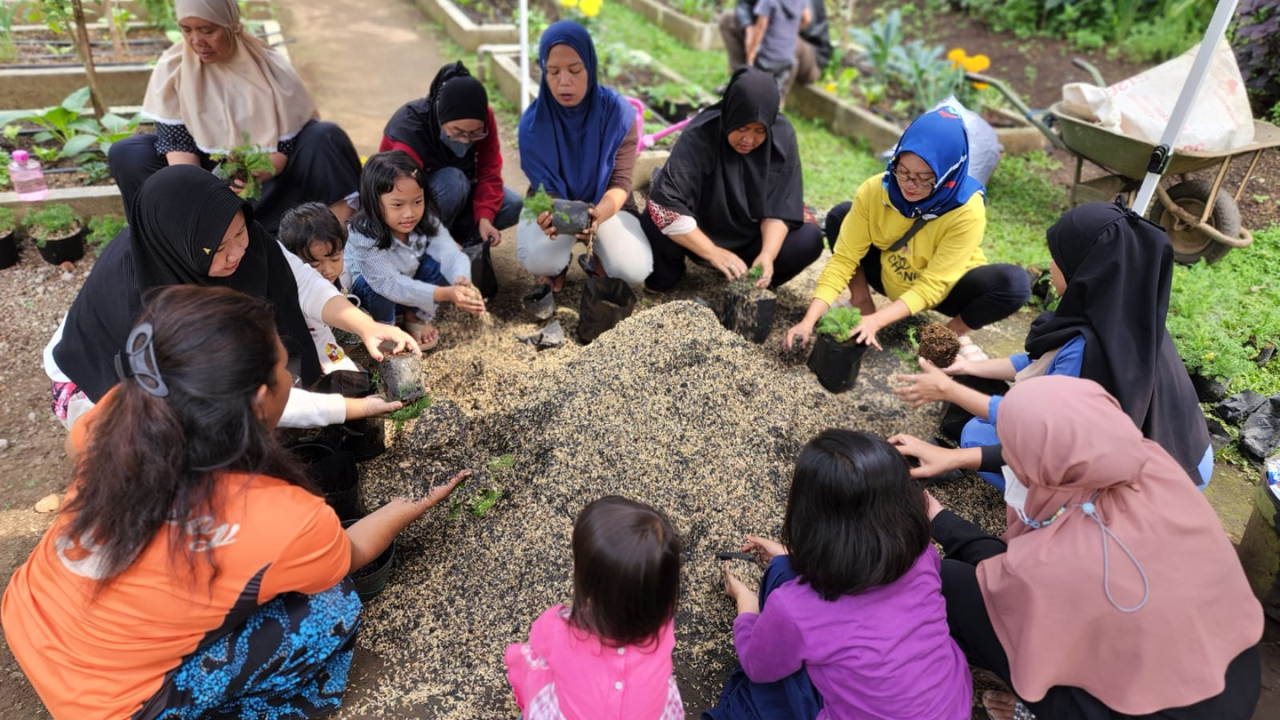SBM ITB lecturers conducted a community service program introducing chamomile cultivation to the people of Sukaraja, Cicendo, and Bandung (Saturday, July 23, 2022). Melia Famiola, Ph.D. from the Entrepreneurship & Technology Management (ETM) Expertise Group, led this activity, with the members N. Nurlaela Arief, Prameshwara Anggahegari from People & Knowledge Management Expertise Group (KK PKM), and Tita Januaryta (ETM Lecturer). This program focuses on training urban women to plant chamomile, educating them about the issue of environmental sustainability in urban areas, and creating a new economy for urban communities, especially economically low-income families.
Chamomile is a type of plant with many benefits. From a market perspective, chamomile is currently one of the plants quite popular for tisane products (herbal drinks such as tea made from flowers or a combination of flowers and herbs). Tisane products have many health and beauty benefits, such as overcoming cholesterol and insomnia and contain high antioxidants. From the market demand, the high-income circles enjoy this plant to make various infused water brewed like tea.

Unfortunately, the current chamomile in Indonesia largely depends on imports, hence the high price. Thus, the SBM ITB Lecturer Community Service Team saw it as an opportunity through the Teras Hijau (Green terrace) project to introduce chamomile as a community plant combined with programs related to urban food security.
These activities carried out by the SBM ITB Lecturer Team with the Teras Hijau Project began by introducing food plant gardening techniques with mixed agriculture. This agricultural model not only provides food needs but also conserves nature and maintains the balance of the ecosystem.
Studies show that chamomile is a pest repellant for those that usually attack some horticultural crops, such as vegetables. It even smells good and can reduce urban mosquitoes.
Melia Famiola, the SBM ITB Lecturer, involved in this community service program, said, “The promising market and its benefits for supporting the balance of the ecosystem, especially for urban farming, is our main reason for presenting chamomile as a new business opportunity for urban communities, especially after this Covid-19 pandemic. We need new approaches that create a new economy for our society,” said Melia


This community service not only introduced how to plant and cultivate chamomile to the urban women but also organized sharing sessions with chamomile practitioners to share their methods and experiences and helped to penetrate the market and branding chamomile products produced by the community with Sahitya Tisane Branding. The Tisane Chamomile product is the second product of the Gerakan Teras Hijau (Green Terrace Movement) Project to enter the market. Previously, there were products of butterfly pea (telang) and its combination, which can now be found in several organic shops in Bandung.




